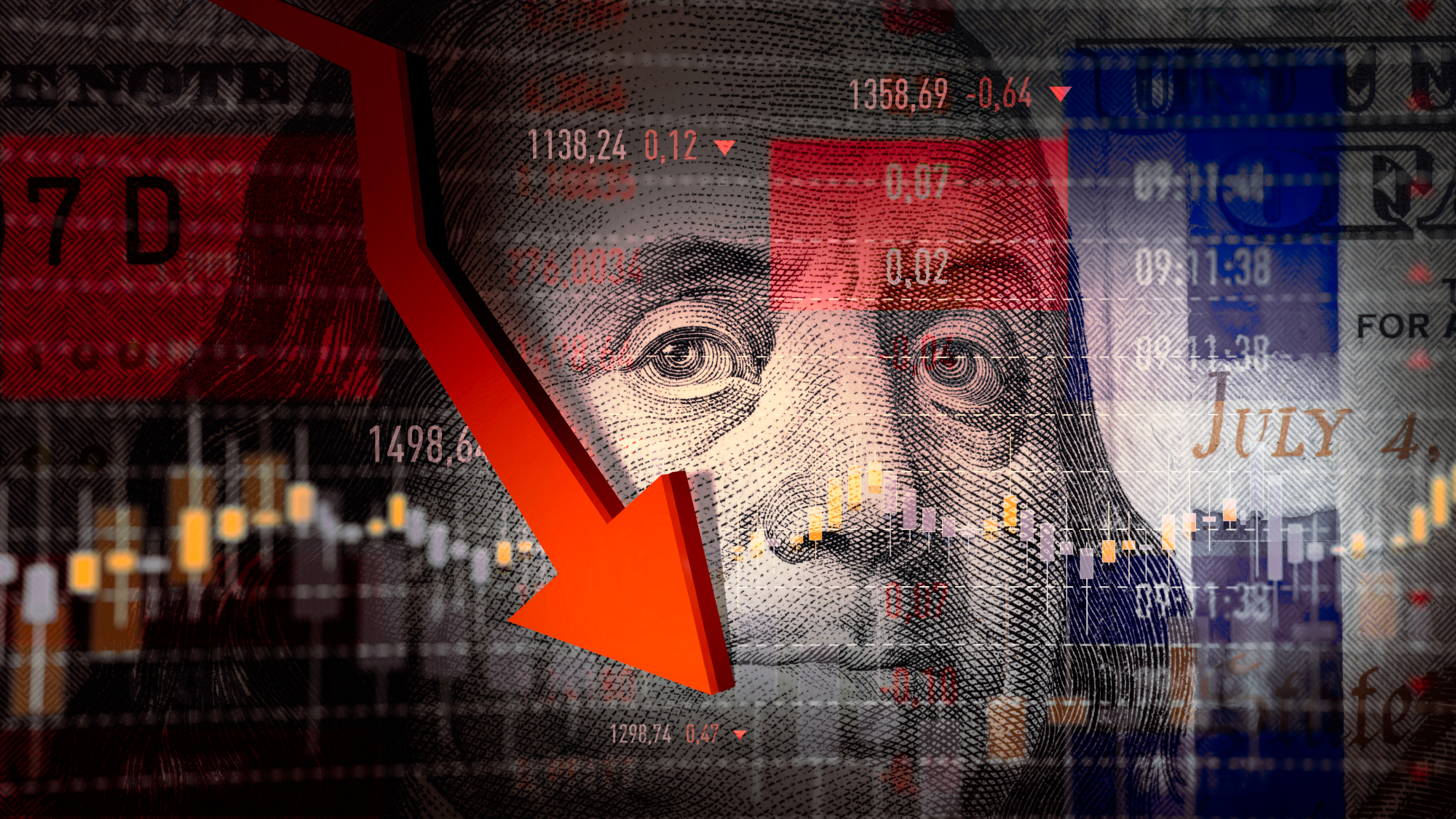Locked out of a bank account
And more of the week's best financial insight

A free daily email with the biggest news stories of the day – and the best features from TheWeek.com
You are now subscribed
Your newsletter sign-up was successful
Here are three of the week's top pieces of financial insight, gathered from around the web:
Locked out of a bank account
The popular banking app Chime has been locking customers out of their accounts without explanation, said Carson Kessler at ProPublica. Chime, a branchless "neobank" with more than 12 million customers, has received 920 complaints filed at the Consumer Financial Protection Bureau since last April, a very high number compared with other banks. Most of the complaints involve "accounts that were closed against customers' will." The company says it is trying to crack down on unemployment fraud, and "many account closures occurred directly after a government deposit." But Chime confirmed it has made mistakes. In several instances, "the evidence of misbehavior that Chime cited consisted of the same act its marketing encouraged: opening a new account using a federal stimulus check or payment from unemployment insurance."
The Week
Escape your echo chamber. Get the facts behind the news, plus analysis from multiple perspectives.

Sign up for The Week's Free Newsletters
From our morning news briefing to a weekly Good News Newsletter, get the best of The Week delivered directly to your inbox.
From our morning news briefing to a weekly Good News Newsletter, get the best of The Week delivered directly to your inbox.
IRS wants more ways to track income
The Biden administration is calling for the Internal Revenue Service to keep a closer eye on individual bank accounts, said Andrew Keshner at MarketWatch. According to the proposal, financial institutions would be required to "tell the IRS about aggregated 'inflow' and 'outflow' from bank, loan, and investment accounts," with a starting threshold of just $600. Treasury Secretary Janet Yellen has defended the idea as an enforcement tool. Officials say there is "nearly perfect" compliance with income taxes based strictly on wages and salaries. But the IRS "wants more eyes in more places" to be able to spot alternative income streams that "might not get reflected on a tax return." Though the IRS would not receive "transaction-level details," critics still say the plan amounts to "a dragnet for regular taxpayers."
A 24/7 stock-trading startup
A startup trading platform is seeking approval from the Securities and Exchange Commission to operate a stock exchange 24/7, said Alexander Osipovich at The Wall Street Journal. The company, 24 Exchange, said that "there is growing demand for round-the-clock stock trading," particularly from surging numbers of individual and overseas investors who "want to buy or sell stocks outside of standing trading hours." The U.S. stock market has for decades operated between 9:30 a.m. and 4 p.m. on weekdays. An always-open alternative is likely to draw opposition from some on Wall Street, who "like the ability to relax and go home after the market closes."
A free daily email with the biggest news stories of the day – and the best features from TheWeek.com
This article was first published in the latest issue of The Week magazine. If you want to read more like it, you can try six risk-free issues of the magazine here.
-
 What to know before filing your own taxes for the first time
What to know before filing your own taxes for the first timethe explainer Tackle this financial milestone with confidence
-
 The biggest box office flops of the 21st century
The biggest box office flops of the 21st centuryin depth Unnecessary remakes and turgid, expensive CGI-fests highlight this list of these most notorious box-office losers
-
 The 10 most infamous abductions in modern history
The 10 most infamous abductions in modern historyin depth The taking of Savannah Guthrie’s mother, Nancy, is the latest in a long string of high-profile kidnappings
-
 Did markets’ ‘Sell America’ trade force Trump to TACO on Greenland?
Did markets’ ‘Sell America’ trade force Trump to TACO on Greenland?Today’s Big Question Investors navigate a suddenly uncertain global economy
-
 Texas is trying to become America’s next financial hub
Texas is trying to become America’s next financial hubIn the Spotlight The Lone Star State could soon have three major stock exchanges
-
 What a rising gold price says about the global economy
What a rising gold price says about the global economyThe Explainer Institutions, central banks and speculators drive record surge amid ‘loss of trust’ in bond markets and US dollar
-
 Is a financial market crash around the corner?
Is a financial market crash around the corner?Talking Points Observers see echoes of 1929
-
 The AI bubble and a potential stock market crash
The AI bubble and a potential stock market crashToday's Big Question Valuations of some AI start-ups are 'insane', says OpenAI CEO Sam Altman
-
 DORKs: The return of 'meme stock' mania
DORKs: The return of 'meme stock' maniaFeature Amateur investors are betting big on struggling brands in hopes of a revival
-
 Dollar faces historic slump as stocks hit new high
Dollar faces historic slump as stocks hit new highSpeed Read While stocks have recovered post-Trump tariffs, the dollar has weakened more than 10% this year
-
 How the US bond market works – and why it matters
How the US bond market works – and why it mattersThe Explainer Donald Trump was forced to U-turn on tariffs after being 'spooked' by rise in Treasury yields